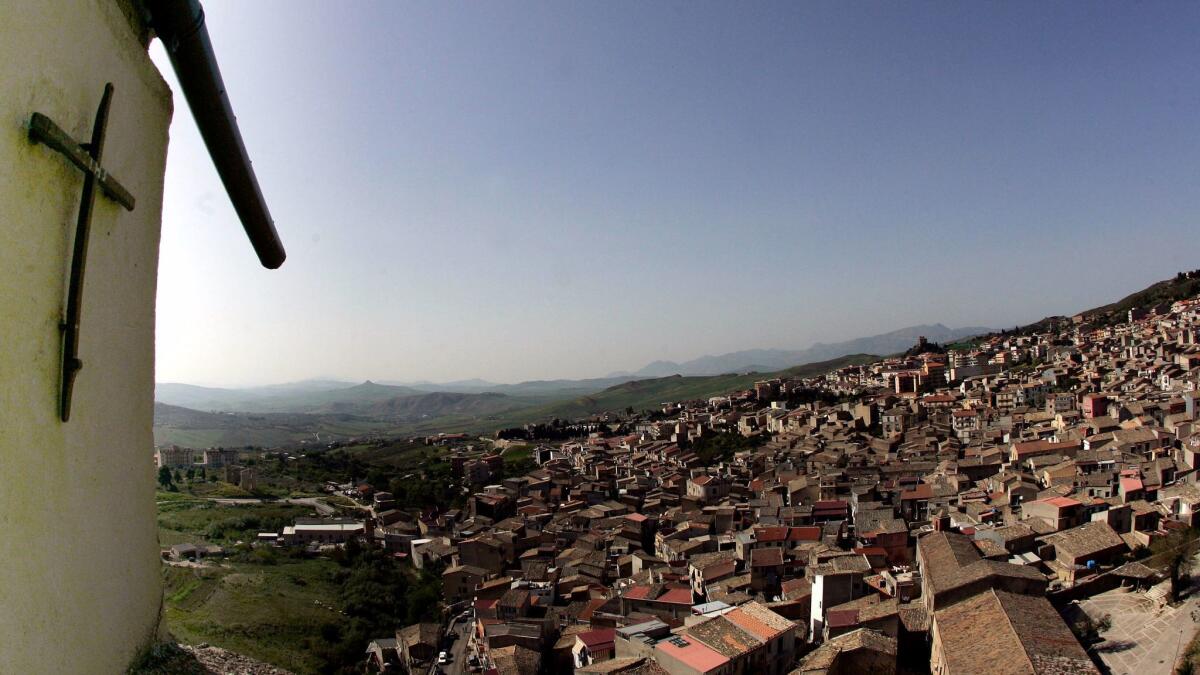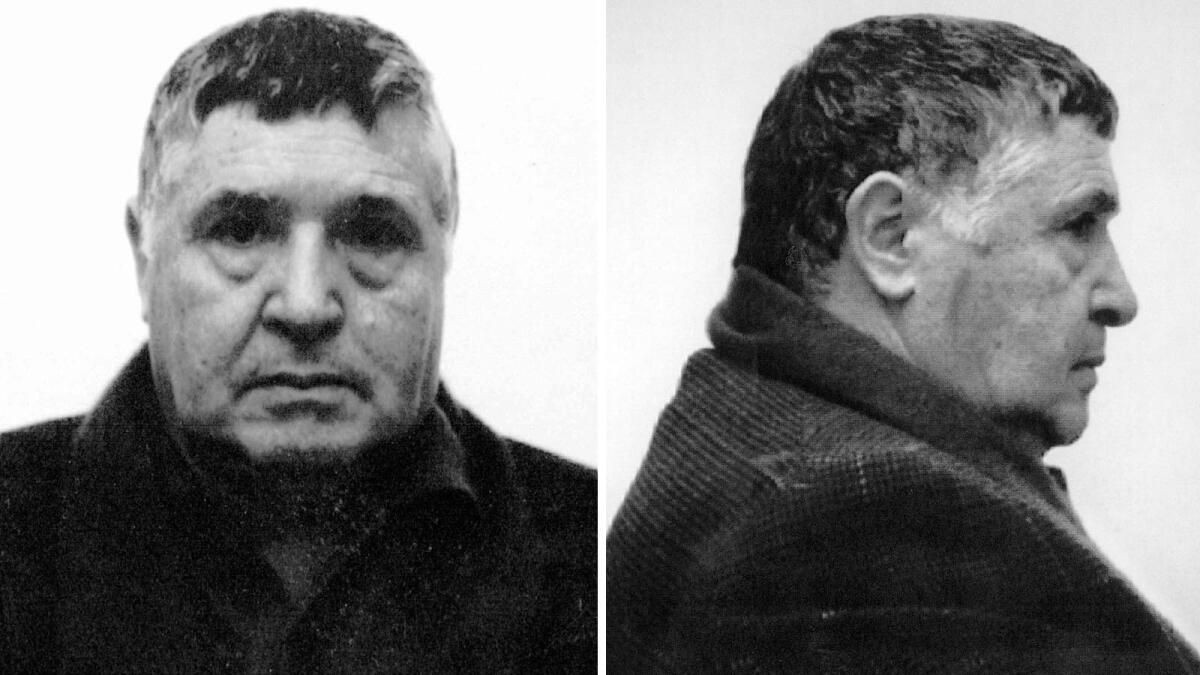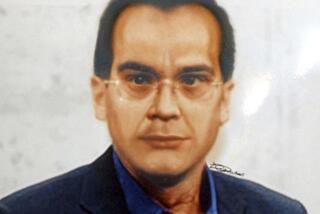Notorious Mafia ‘boss of bosses’ Salvatore ‘Toto’ Riina dies at 87

Reporting from MILAN, Italy — Mafia “boss of bosses” Salvatore “Toto” Riina died early Friday in a hospital while serving multiple life sentences as the mastermind of a bloody strategy to assassinate Italian prosecutors and law enforcement officers trying to bring down the Cosa Nostra, Italian media reported. He was 87.
Riina died hours after Italy’s justice minister had allowed the crime boss’ his family members bedside visits Thursday, which was his birthday, after he had been placed in a medically induced coma at a hospital in Parma. Italian media said his health had deteriorated after two recent surgeries.
News of the death was carried by the ANSA news agency, RAI state TV and all major newspaper websites. The Justice Ministry was not able to confirm the news immediately, and the prison would not take calls.
Riina, one of Sicily’s most notorious Mafia bosses, was serving 26 life sentences for murder convictions as a powerful Cosa Nostra boss. He was captured in Palermo, Sicily’s capital, in 1993 and imprisoned under a law that requires strict security for top mobsters, including being detained in isolated sections of prisons with limited time outside their cells.
Prosecutors accused Riina, who ruthlessly directed the mob’s criminal empire during 23 years in hiding, of masterminding a strategy, carried out over several years, to assassinate Italian prosecutors, police officials and others who were going after the Cosa Nostra, when he allegedly held the helm as the so-called boss of bosses.
The bloodbath campaign ultimately backfired, however, and led to his capture.

Riina was born in the mountain town of Corleone in central Sicily. The town’s name was borrowed for the main character in the “Godfather” novels by Mario Puzo, written years before Riina rose in the Mafia ranks.
Investigators believe that Riina, the son of a Corleone farmer, jockeyed his way to the top of the Mafia by pitting rivals against each other, and then standing out of the way of the bloodshed that felled one boss after the other in the 1970s.
He went into hiding in 1969 after being ordered by the state to leave Sicily after he had finished serving a five-year prison sentence for Mafia association. During his decades on the lam, the only picture authorities had of the fugitive was more than 30 years old.
More than one Mafia defector had said that Riina had come and gone as he pleased during the years as Italy’s top fugitive. Riina was handed his first life sentence in 1987 after being tried in absentia on murder and drug trafficking charges.
For decades, Riina seemed to mock law enforcement as he reigned from underground over the mob’s drug trafficking network and ordered the deaths of top anti-Mafia fighters.
But after bombs killed Italy’s two leading anti-Mafia magistrates, Giovanni Falcone and Paolo Borsellino, two months apart in 1992, the state stepped up its crackdown on Sicily’s Mafiosi.
Anti-Mafia investigators worked with turncoats to zero in on the “capo dei capi,” locating Riina and blocking his car on a Palermo thoroughfare on Jan. 15, 1993.
Riina steadfastly refused to collaborate with law enforcement after his capture.
The archbishop of Monreale, which includes Corleone, said Friday that Riina’s death “ends the delusion of the Cosa Nostra boss of bosses’ omnipotence.”
“But the Mafia has not been defeated, and therefore we should not let down our guards,” Archbishop Michele Pennisi said in an email to the Associated Press.
Pennisi said he had no information on whether family members intended to transfer Riina’s body to Corleone, but he said that a public funeral would not be allowed since Riina was a “public sinner.”
“If the family members ask, a private prayer in the cemetery will be considered,” he added.
More to Read
Sign up for Essential California
The most important California stories and recommendations in your inbox every morning.
You may occasionally receive promotional content from the Los Angeles Times.










